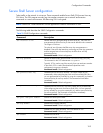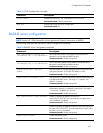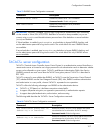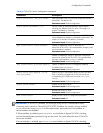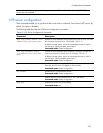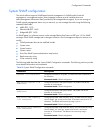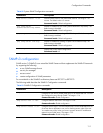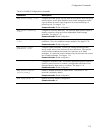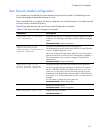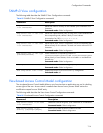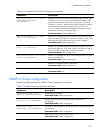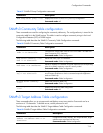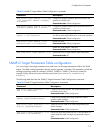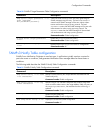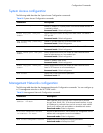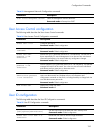
Configuration Commands
113
User Security Model configuration
You can make use of a defined set of user identities using this Security Model. An SNMP engine must
have the knowledge of applicable attributes of a user.
These commands help you create a user security model entry for an authorized user. You need to provide
a security name to create the USM entry.
The following table describes the User Security Model Configuration commands.
Table 84 User Security Model Configuration commands
Command Description
snmp-server user <1-16> name
<1-32 characters>
Configures a string up to 32 characters long that represents the name
of the user. This is the login name that you need in order to access the
switch.
Command mode: Global configuration
snmp-server user <1-16>
authentication-protocol
{md5|sha|none} authentication-
password <password>
Configures the authentication protocol and password.
The authentication protocol can be HMAC-MD5-96 or HMAC-SHA-96,
or none. The default algorithm is none.
When you configure an authentication algorithm, you must provide a
password; otherwise you receive an error message during validation.
This command allows you to create or change your password for
authentication.
Command mode: Global configuration
snmp-server user <1-16>
privacy-protocol {des|none}
privacy-password <password>
Configures the type of privacy protocol and the privacy password.
The privacy protocol protects messages from disclosure. The options
are des (CBC-DES Symmetric Encryption Protocol) or none. If you
specify des as the privacy protocol, then make sure that you have
selected one of the authentication protocols (MD5 or HMAC-SHA-96).
If you select none as the authentication protocol, you receive an error
message.
You can create or change the privacy password.
Command mode: Global configuration
no snmp-server user <1-16>
Deletes the USM user entries.
Command mode: Global configuration
show snmp-server user <1-16>
Displays the USM user entries.
Command mode: All



